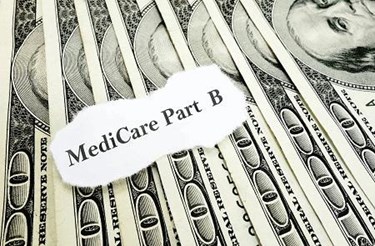How Would Proposed Congressional Price Control Policies Impact Biosimilars?

With the new year comes the same debate about what to do with steadily escalating drug prices, especially those of specialty pharmaceuticals. There have been some recent proposals to solve this problem. Sen. Bernie Sanders (I-VT) has introduced three bills aimed at reducing prescription drug prices, two of potential importance to biosimilar developers: the Prescription Drug Price Relief Act of 2019 and the Medicare Drug Price Negotiation Act of 2019. This article will provide an overview of each bill and explain their likely impact on biosimilars.
Prescription Drug Price Relief Act of 2019
This act “would require the Secretary of Health and Human Services to make sure that Americans don’t pay more for prescription drugs than the median price of the following five countries: Canada, the United Kingdom, France, Germany, and Japan. If pharmaceutical manufacturers refuse to lower drug prices down to the median price of these five countries, the federal government would be required to approve cheaper generic versions of those drugs, regardless of any patents or market exclusivities that are in place.”1
This bill has prompted questions in the industry as to whether it differs from the administration’s International Pricing Index (IPI) Model. That proposed rule states: “Specifically, the IPI Model would initially focus on Part B single source drugs, biologicals, and biosimilars that encompass a high percentage of Part B drug utilization and spending. The Innovation Center would test this model under section 1115A of the Social Security Act (the Act), which authorizes testing models expected to reduce program expenditures, while preserving or enhancing the quality of care furnished to beneficiaries. The model under consideration would include physicians, hospitals, and potentially other providers and suppliers in selected geographic areas.
The IPI Model test would include the following components:
- Set the Medicare payment amount for selected Part B drugs to be phased down to more closely align with international prices;
- Allow private-sector vendors to negotiate prices for drugs, take title to drugs, and compete for physician and hospital business; and
- Increase the drug add-on payment in the model to reflect 6 percent of historical drug costs.
- Pay physicians and hospitals the add-on based on a set payment amount structure; CMS would calculate what CMS would have paid in the absence of the model, before sequestration, and redistribute this amount to model participants based on a set payment amount.”2
While the administration does not list specifics about how biosimilars would be impacted by the IPI’s policy proposals on Part B changes, Sanders’ bill lists a few specifics on biosimilars:
- First, under the bill’s proposed powers of expedited review, the secretary would prioritize the review of, and act within eight months of the date of the submission of, a generic drug application or biosimilar biological product application.
- Second, the secretary would establish and maintain a comprehensive, up-to-date database of brand-name drugs and the excessive price determinations. This would also include the number of open, nonexclusive licenses the secretary has granted for generic drug or biosimilar biological product versions of the drug.
- Third, not later than 60 days after the first excessive price review is complete and annually thereafter, the secretary would submit to Congress a report describing the excessive drug price review for the preceding year. The report would contain summary data regarding the total number of generic drug or biosimilar biological product applications received and approved that reference a drug so licensed. It also would contain the median approval time for generic drug or biosimilar biological product applications that reference a drug so licensed.
- Additionally, the bill contains a definition of a biosimilar biological product.
Lastly, Sanders’ bill summary identifies a few branded medications for which biosimilars were recently introduced into the marketplace, which indirectly shows his intent to use generics and biosimilars to help realize his goals.
Medicare Drug Price Negotiation Act of 2019
The second bill would:
- strike the noninterference clause and direct the secretary to negotiate lower prices with drug manufacturers that participate in Medicare Part D
- direct the secretary to prioritize negotiating for drugs that place the most burden on seniors and taxpayers: high-cost drugs, drugs with significant price increases, drugs that drive up Medicare Part D spending, and drugs without competition
- provide for automatic renegotiation of drug prices every three years
- direct the secretary to further leverage the purchasing power of the government by using drug formularies to enhance competition
- establish fallback prices based on what other federal agencies and five foreign countries — Canada, the United Kingdom, Germany, France, and Japan — pay. These fallback prices would kick in automatically if negotiations with drug manufacturers are unsuccessful.
- preserve critical protections for patient access by including in any formulary certain categories and classes of drugs that are protected under current law and by strengthening the patient appeals processes for Part D plans
- allow Part D plans to use additional benefit design and formulary tools to secure steeper discounts or rebates for beneficiaries.3
While the Medicare Drug Price Negotiation Act of 2019 would impact Part D, this bill could indirectly affect biosimilars. While biosimilars primarily reside in Medicare Part B, the disease states responsible for higher prescription drug costs within Medicare Part D include diabetes. This is important for a disease state like diabetes for two reasons. First, many critics say that the price of insulin is too high and that something needs to be done to curb spending for a disease that affects a very large population. Second, new biosimilar insulin products are expected to enter the U.S. market.
For example, Sandoz has partnered with Gan & Lee Pharmaceutical to commercialize biosimilar versions of insulins that impact Type 1 and 2 diabetics. Since biosimilars are normally reimbursed under Medicare Part B, this is an example where a Medicare Part B product, such as a biosimilar, designed to fight a disease state prevalent in Part D beneficiaries can cross over into Medicare Part D reimbursement to lower costs. Thus, Medicare Part D can be the crossroads for lowering higher-priced drugs usually addressed in Part B, which is why the administration in its American Patients First Blueprint from spring of 2018 alluded to possibly merging Parts B and D to maximize the potential of lowering Medicare’s drug costs.
Other Current Congressional Initiatives That Could Affect Biosimilars
In addition to Sanders’ cost-containment policies that impact biosimilars, Congress has two other initiatives. First, Rep. Elijah Cummings (D-MD), chair of the Committee on Oversight and Reform, has launched an investigation into drug pricing. “Cummings sent letters to 12 drug companies seeking detailed information and documents about the companies’ pricing practices. The letters seek information and communications on price increases, investments in research and development, and corporate strategies to preserve market share and pricing power. The letters are the first step in the Committee’s comprehensive review of pricing practices. The Committee will hold its first of several hearings in the coming weeks to hear from experts, as well as patients affected by rising drug prices.”4 To date, some of the drug companies listed in the investigation have approved biosimilar versions of their products.
Lastly, Sens. Chuck Grassley (R-IA) and Amy Klobuchar (D-MN) have introduced the Preserve Access to Affordable Generics and Biosimilars Act. The bill proposes to prohibit brand-name drug companies from compensating generic drug companies to delay the entry of a generic drug into the market and to prohibit biological product manufacturers from compensating biosimilar biological products and interchangeable biological products.
In conclusion, the administration has shown cost-containment is a goal through the aggressive policies being introduced by FDA Commissioner Scott Gottlieb as well as American Patients First and the IPI model. This, coupled with the various congressional efforts, illustrate that not only are biosimilars considered a possible solution to the policy problem of high-cost medications, but that hopefully biosimilars can help attain better policies for lower healthcare costs to achieve improved patient outcomes.
References:
- U.S. Senator Bernie Sanders, The Prescription Drug Price Relief Act of 2019 https://www.sanders.senate.gov/download/final_-prescription-drug-price-relief-act-of-2019---summary?id=D3922119-B92C-41F0-997D-2B931E34B2FE&download=1&inline=file
- Medicare Program; International Pricing Index Model for Medicare Part B Drugs https://www.federalregister.gov/documents/2018/10/30/2018-23688/medicare-program-international-pricing-index-model-for-medicare-part-b-drugs
- U.S. Senator Bernie Sanders, The Medicare Drug Price Negotiation Act of 2019 https://www.sanders.senate.gov/download/final_-medicare-drug-price-negotiation-act-of-2019---summary?id=FE53441E-C3BD-4141-AE91-D9FC402BE9F0&download=1&inline=file
- U.S. House of Representatives, Committee on Oversight and Reform https://oversight.house.gov/news/press-releases/oversight-committee-launches-sweeping-drug-price-investigation
About The Author:
 Ronald W. Lanton III, Esq., has over 25 years of experience in government affairs at the municipal, state, and federal government levels, with 15 years dedicated to the healthcare sector. He is currently the executive director and head lobbyist at Frier Levitt Government Affairs, LLC and senior counsel at Frier Levitt. He frequently consults Wall Street firms on financial issues related to the healthcare sector.
Ronald W. Lanton III, Esq., has over 25 years of experience in government affairs at the municipal, state, and federal government levels, with 15 years dedicated to the healthcare sector. He is currently the executive director and head lobbyist at Frier Levitt Government Affairs, LLC and senior counsel at Frier Levitt. He frequently consults Wall Street firms on financial issues related to the healthcare sector.
Lanton is a featured industry speaker on issues such as pharmaceutical safety and healthcare cost-containment, and he has authored numerous articles regarding pharmacy and healthcare law. He earned a B.A. from Miami University and a J.D. from The Ohio State University. He is also the chair of the Biologics Committee for the New York Bar Association.
